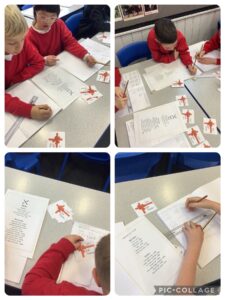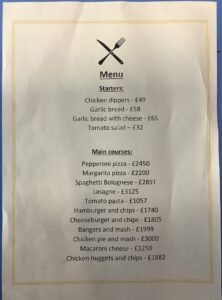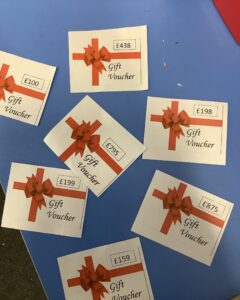Today, Year 4 applied their column addition and subtraction skills to a real-world scenario – a restaurant.
The children were given a (very expensive) menu and chose three things they would like to order. Using their column addition, they worked out the total cost of their bill. After this, they were given a gift voucher to spend in the restaurant. They used their column subtraction to work out the total cost of their bill after their gift voucher had been applied.



It was a really fun way for the children to demonstrate their column addition and subtraction skills!
Help at home: look at the menu and ask the children to order three items and use column addition to work out their total.



































